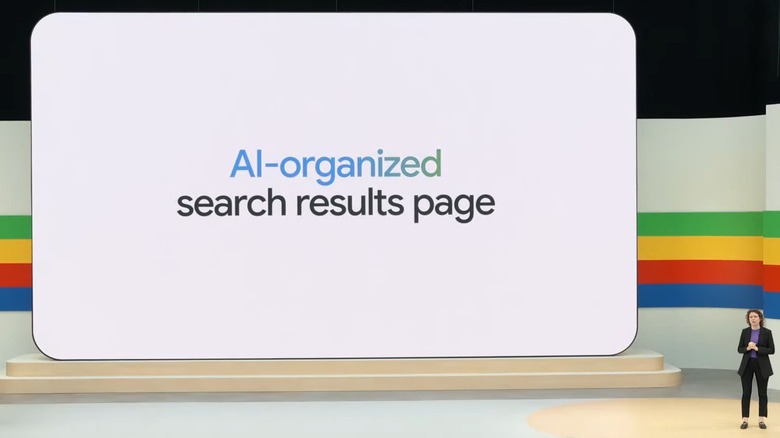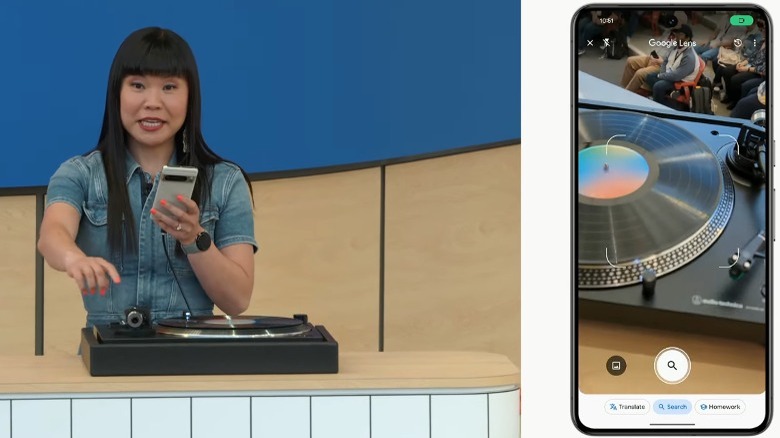Google's AI Search Overview Launches In The US Today, With Big Plans For The Future
Google just gave a keynote that spent a lot of time talking about the myriad of different ways that it would be integrating its Gemini AI into its entire suite of platforms. The speakers talked about how they would be using machine learning in Google Photos, Gmail, its calendar, communication software, and even to make music. But while Google has platforms in virtually every corner of the internet, its most important platform is still the one that built it into what it is today — its search engine.
Google announced during the keynote that it would be integrating Gemini's AI tools into its online search functionality in order to find more convenient, in-depth answers that people struggle to find through conventional searching. "Now, with generative AI, Search can do more than you ever imagined," Google states. "So you can ask whatever's on your mind or whatever you need to get done — from researching to planning to brainstorming — and Google will take care of the legwork."
That all sounds quite impressive — so long as you know how to ask question that get precise answers from Gemini – but the examples that the company used were less than inspiring.
Google AI solves problems we didn't have
It seems that the biggest point of focus for Google's application of Gemini's machine learning capabilities is centered on quickly and easily answering users' questions. You will be able to ask complex questions in the search bar and have Gemini screen articles to get answers and then use generative text to offer summaries, or else break tasks down into step-by-step instructions. "With our custom Gemini model's multi-step reasoning capabilities, AI Overviews will help with increasingly complex questions," Google claims. "Rather than breaking your question into multiple searches, you can ask your most complex questions, with all the nuances and caveats you have in mind, all in one go."
Google also plans to integrate several other features, such as settings that allow you to adjust the AI Overview to customize the results to your liking, AI-organized page results, and video-based searches that use Gemini's image recognition capabilities to answer questions. Most of the demonstrations showcased in the keynote were a little underwhelming, though.
Google VP of Product Rose Yao, for instance, came on stage and used the image-based search function to find the make and model of a record player, while also looking up what the tonearm is called and why it isn't staying in place, combining three to four searches into one. This seems like a highly complex solution to something that wasn't much of a problem. This also might have seemed more impressive if the make and model weren't printed on the front of the record player.

